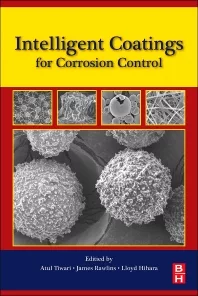Researchers Develop Replacement for Chromate Coatings
RENO, NV – A research team at the University of Nevada, Reno has developed a new environmentally friendly self-healing coating for aluminum to replace chromate coatings used in aerospace applications. The research was presented at the international Pacific Rim Meeting on Electrochemical and Solid-State Science in Hawaii.
Chromate conversion coatings have been used for more than 50 years to protect aluminum from corrosion. Attempts to replace them with non-toxic coatings have been underway since the 1980s. Although the use of chromates for consumer and automotive applications has been banned, it is still in use by the defense and aerospace industries under various exemptions, due to unavailability of suitable replacement combined with the high human and financial cost of failure from corrosion. The search for a suitable replacement has been elusive primarily due the self-healing characteristic of the coating. When scratched, the coating components from nearby sites migrate to the damaged region and re-protect the underlying alloy.
Dev Chidambaram, Assistant Professor of Materials Science and Engineering at the University of Nevada, led a team that has developed a formulation that performs comparably to the chromate formula in its ability for self-healing and can be applied to all aluminum products. The new formula creates an environmentally benign molybdate-based coating that provides corrosion protection to aluminum. The coating, when damaged, will re-heal itself.
The University of Nevada, Reno team developed and tested more than 300 coatings before arriving at this formulation. They used a complimentary suite of advanced surface analytical techniques, such as Raman microspectroscopy, Fourier transform infrared spectroscopy, energy dispersive spectroscopy, secondary ion mass spectroscopy and X-ray photoelectron spectroscopy, to conclusively prove the presence of molybdate in the scratched region. Further, using electrochemical testing, the team showed the coating re-protected itself via self-healing upon scratch test.
The team includes graduate student David Rodriguez, who conducted the testing on the materials, and Roshan Misra, an intern majoring in aerospace engineering at the University of Colorado, Boulder, who began the project as a high school summer intern from Reno High School. The team is still working to optimize the coating formulation for even better protection.
Chidambaram, as the Director of the University’s Materials and Electrochemical Research Laboratory, has obtained nearly $3 million in externally funded research grants in the past three years and directs eight doctoral students and one postdoctoral associate.
Looking for a reprint of this article?
From high-res PDFs to custom plaques, order your copy today!




